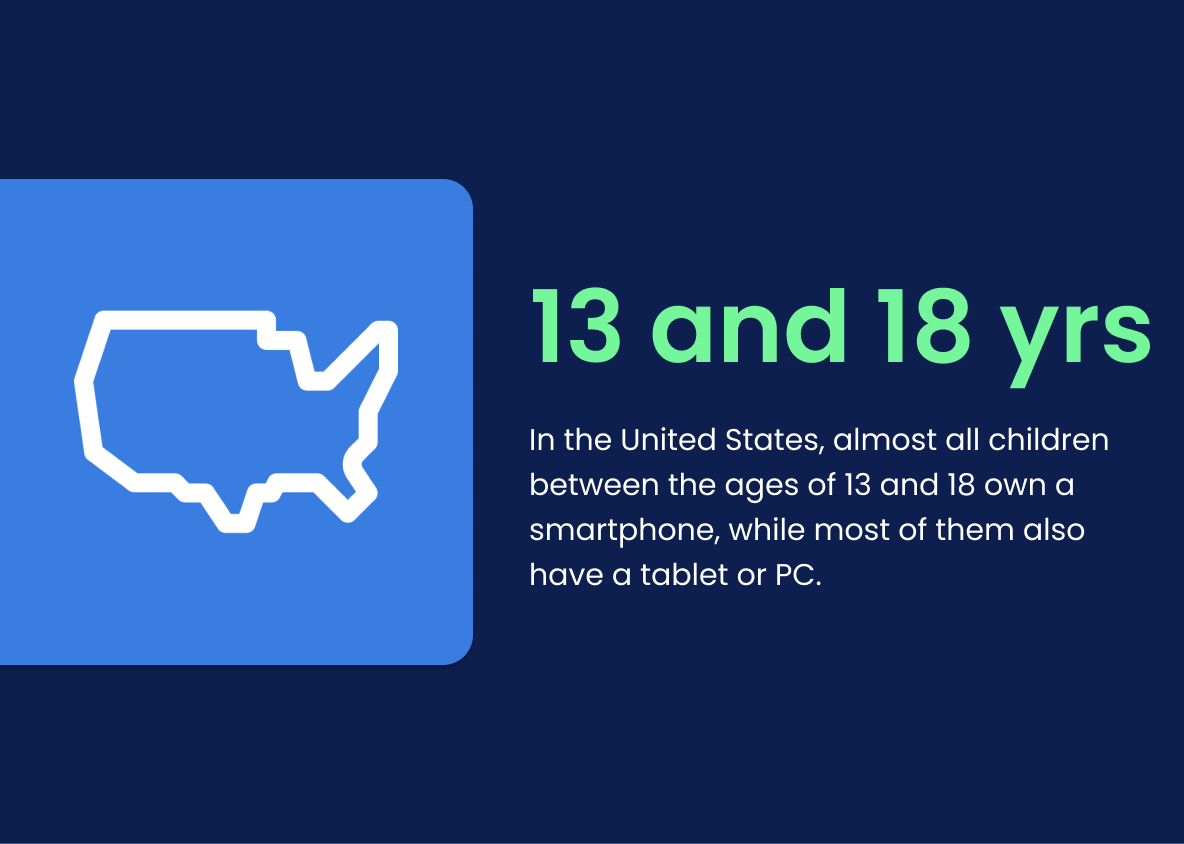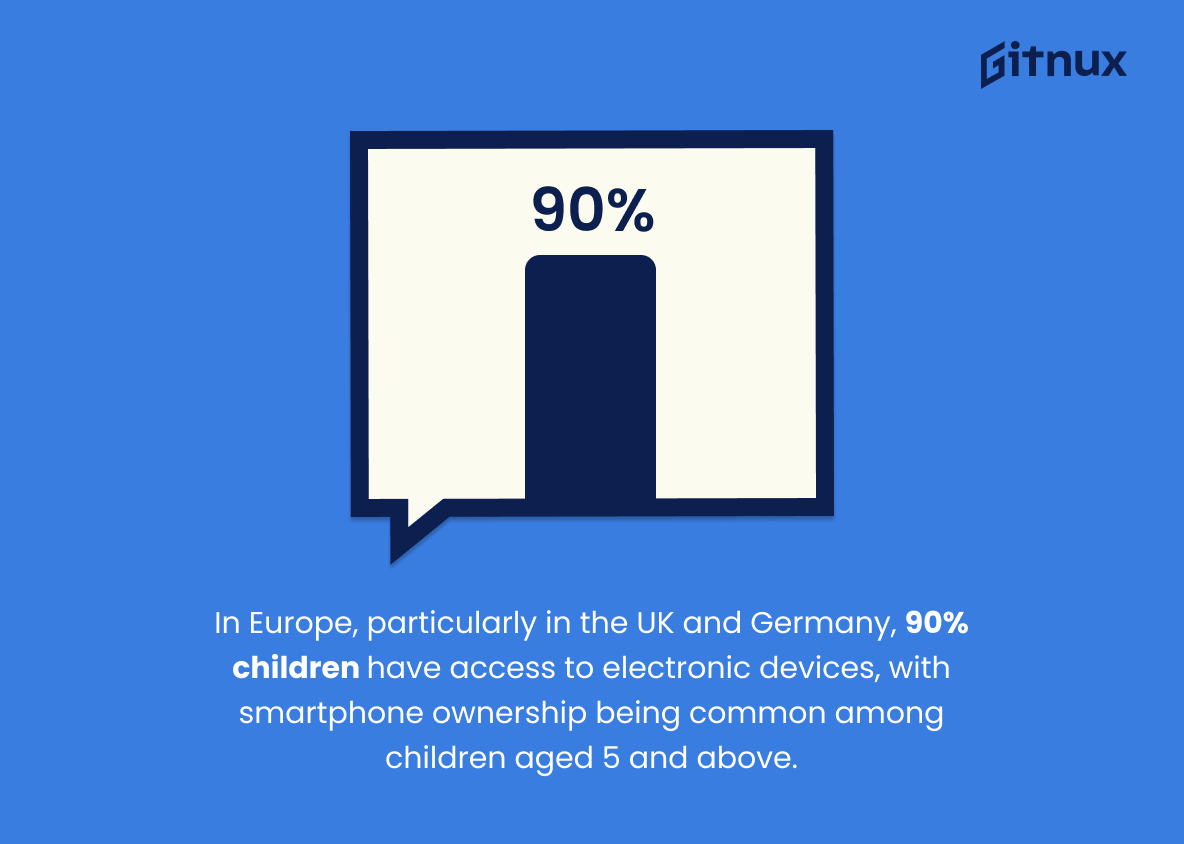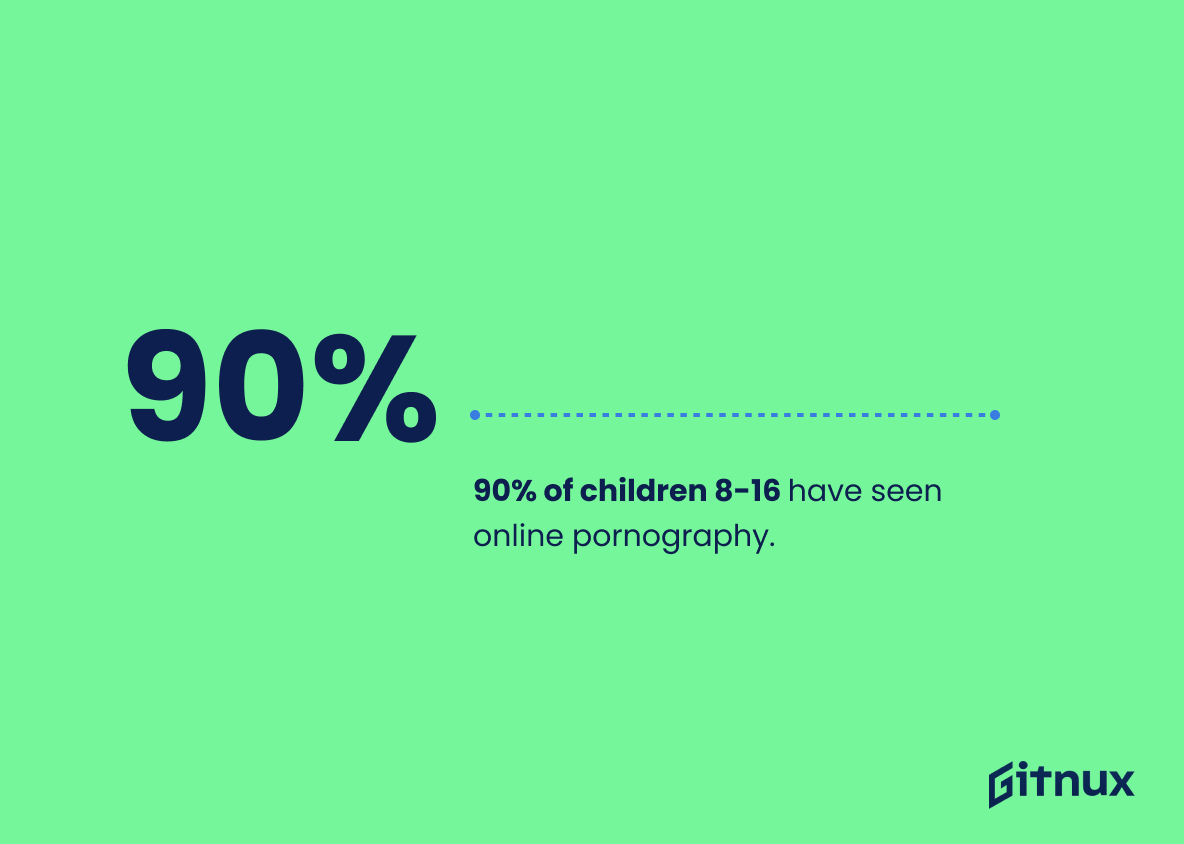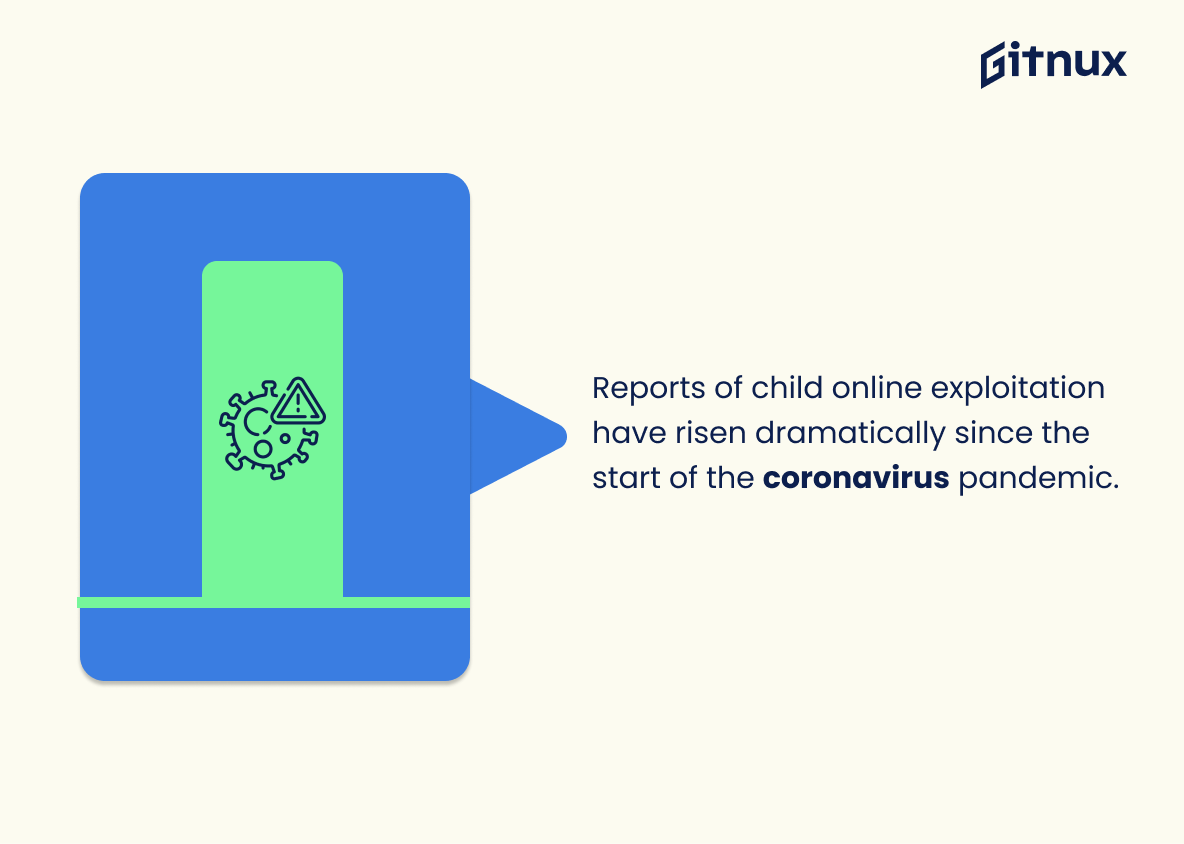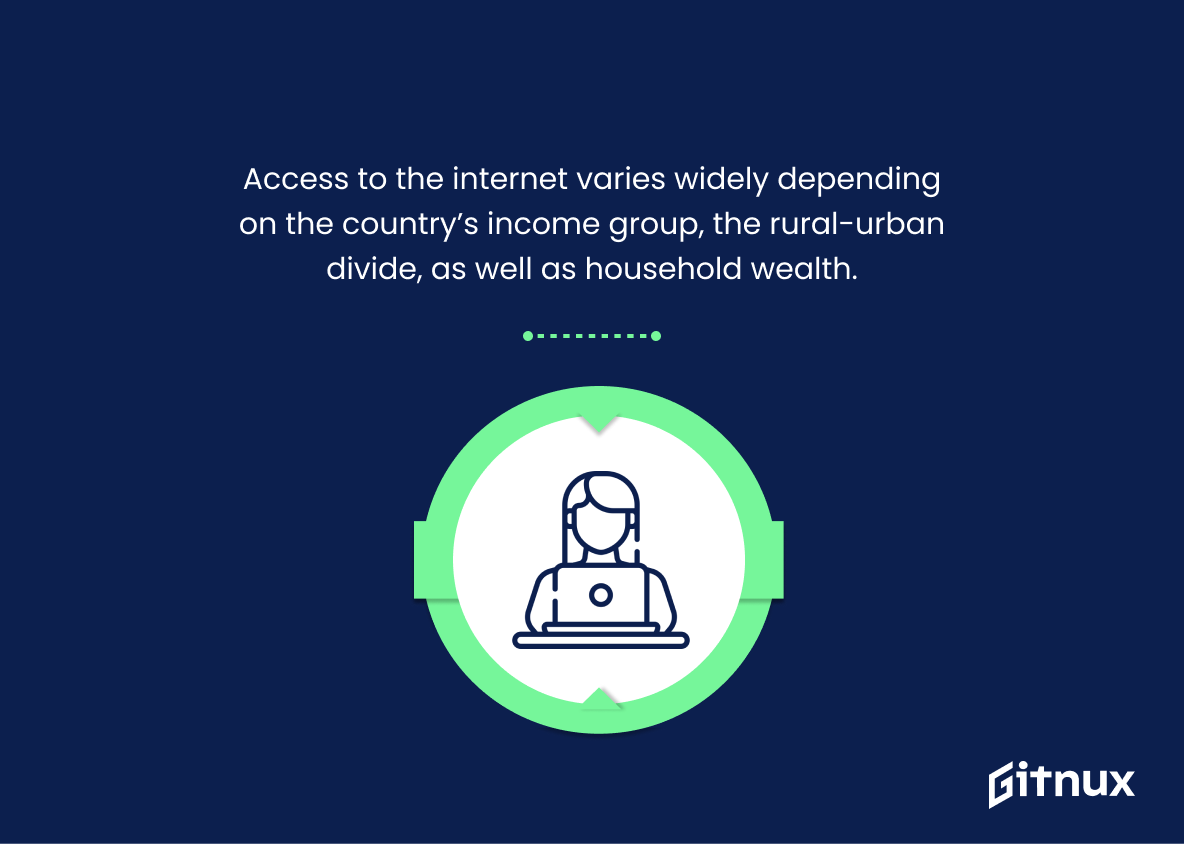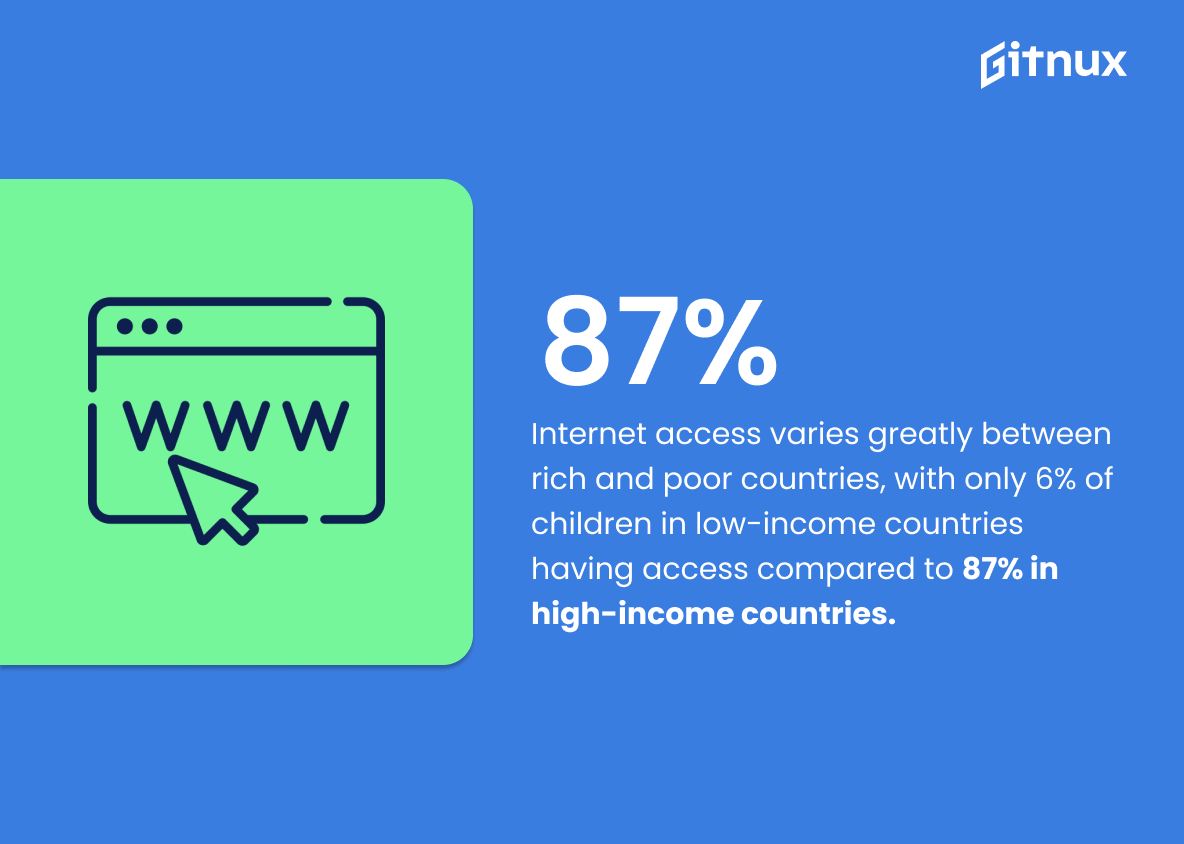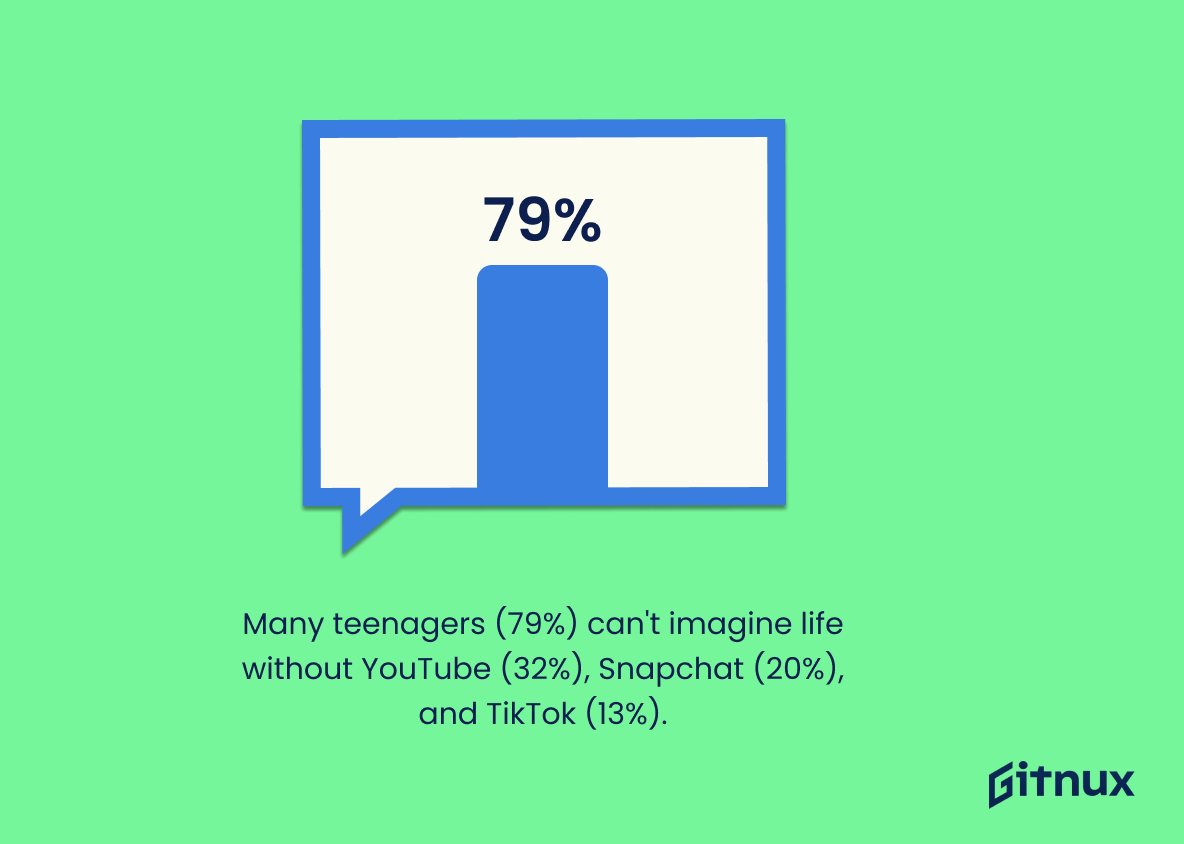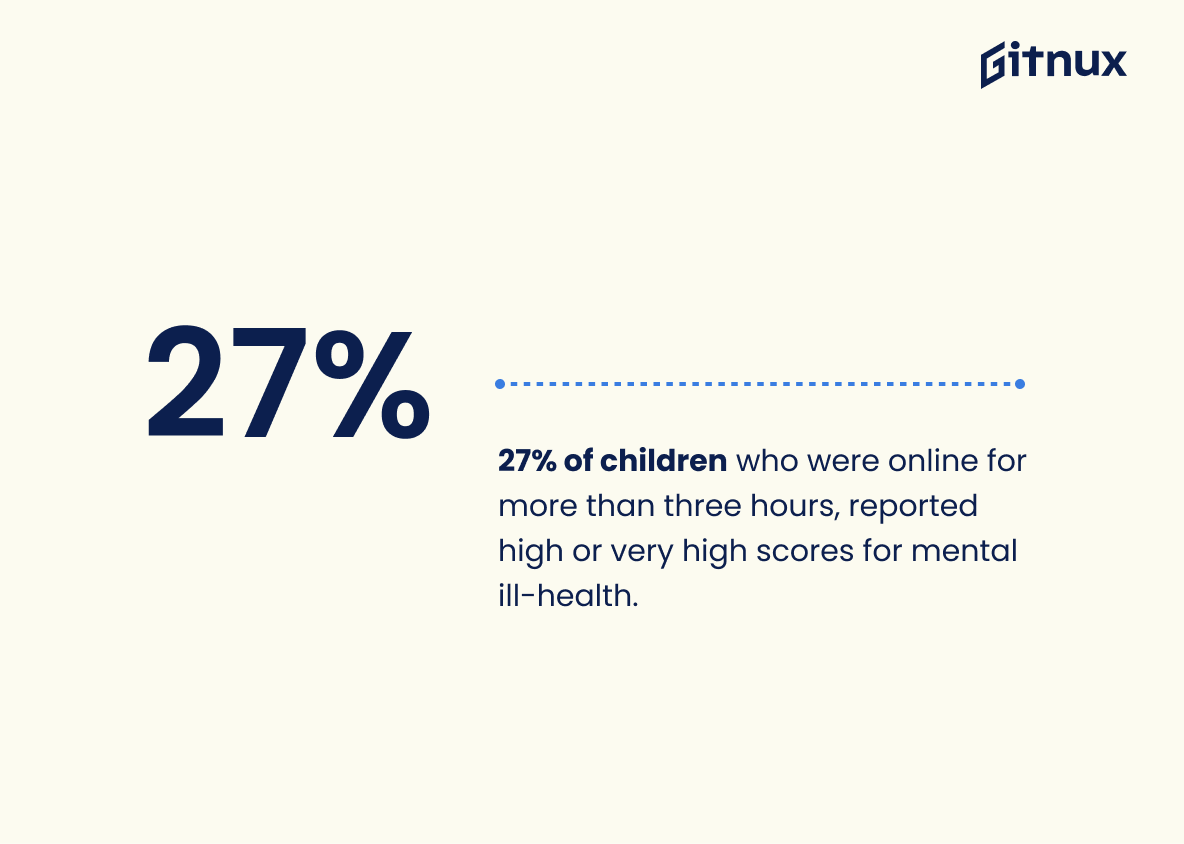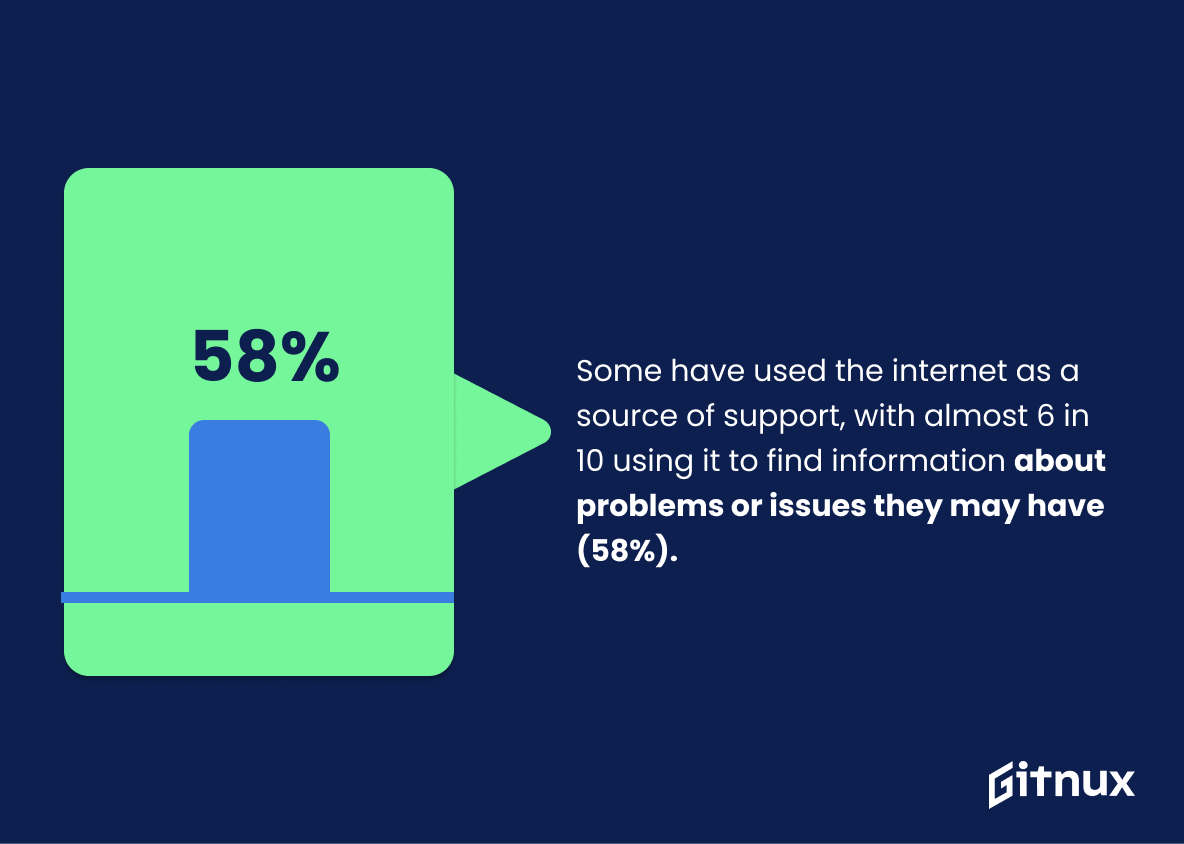Technology has become an indispensable part of our lives and the lives of our children. We are now living in a world where technology has become a necessity and not just a luxury. It is no surprise then that technology has become a part of the lives of our children as well.
In this blog post, we will be taking a look at some of the most interesting statistics related to kids and technology. We will be exploring the ways in which technology is impacting the lives of our children and the implications that this has for their development. We will also be discussing the potential risks and benefits of technology for our kids. So, let’s get started.
Kids And Technology: The Most Important Statistics
90% of children aged 8-16 have seen online pornography.
30% of kids who used the internet for over 3 hours were diagnosed with depression.
General Kids And Technology Statistics
Let’s have a quick glance at some jaw-dropping Statistics regarding Kids And Technology.
In the United States, almost all children between the ages of 13 and 18 own a smartphone, while most of them also have a tablet or PC.
53% of kids in the US today have a smartphone by the age of 11.
In Europe, like in the United States, children have access to many electronic devices at 90% in the UK and 99% in Germany. Smartphone ownership is common among children aged 5 or 6 and upwards in the United Kingdom and Germany.
Kids between the ages of 5-8 spend over 3 hours per day on a screen and 82% of parents say they are concerned about their kids’ screen time.
90% of children 8-16 have seen online pornography.
65% of 8-14-year-olds have been involved in some kind of cyberbullying incident.
Reports of child online exploitation have risen dramatically since the start of the coronavirus pandemic.
It’s scary for parents to know that more time online means more exploitation. According to the National Center for Missing and Exploited Children, the nonprofit saw 4.1 million reports of child online exploitation in April of last year as education moved online, up by over 3 million the same time the previous year.
Kids And Technology Access Statistics
2.2 billion – or 2 in 3 children and young people aged 25 years or less – do not have internet access at home.
Access to the internet varies widely depending on the country’s income group, the rural-urban divide, as well as household wealth.
Only 5% of children and young people in West and Central Africa have internet access at home compared to the 33% global average.
Differences are stark between rich and poor countries, with only 6% of children and young people in low-income countries having internet access compared to 87% in high-income countries.
A detailed report shows that screen use in 2021 increased far faster than it had in the previous four years.
Among the 79% of 13- to 18-year-olds who are regular users of social media and online videos,32% reported they wouldn’t want to live without Youtube, 20% without Snapchat and 13% without TikTok.
Social media use is growing among 8-to-12-year-olds. 38% of tweens used social media (up from 31% in 2019). Nearly one in five (18%) said they now use social media daily (up from 13% since 2019).
The top five social media sites teens have ever used are Instagram (53%), Snapchat (49%), Facebook (30%), Discord (17%), and Twitter (16%).
38% of tweens have used social media, despite the fact that most platforms are not meant to be used by people under the age of 13.
According to research, the average 8- to 10-year-old spends almost 8 hours a day with a variety of media, and older children and teenagers spend around 11 hours per day with media. That is to say, young people are spending more time with technology than they do in school.
Nearly all children went online in 2021 (99%); the majority used a mobile phone (72%) or tablet
(69%) to do so.
Kids And Technology Negative Effects
Excessive use of technology unfortunately has a lot of negative effects on tweens and teens. For example, lower attention span, increased risk and lack of privacy, risk of depression, obesity, falling grades, bullying, or social interaction issues. Let’s have a quick look at some statistics.
Children who spent more than 3 hours on social media on a school day reported significantly higher total difficulties scores (averaging 13.3 out of 40) than those who didn’t use it (10.2) or who spent less time using them (10.5).
Children bullied frequently are more than 4x more likely to report high or very high Total Difficulties scores (41%) than those who are bullied less frequently or not at all (9%).
In March 2015, the government pledged £1.25billion to improve mental health services for children and young people.
Children with a lot of screen time are 5 times more likely to display behavioral problems.
For every extra hour of screen viewing children are 16% more likely to become overweight or obese whilst every hour less of sleep is associated with a 23% increased risk of overweight or obesity.
Eight-graders who spend over 10 hours on social media per week are 56% more likely to report being unhappy than those who spend less time on social media.
27% of children who were online for more than three hours, reported high or very high scores for mental ill-health.
Also, a study in the International Journal of Child Health and Human Development found 30% of the 1,500 kids in the study who used the internet for over 3 hours were diagnosed with depression.
More than a third of 8-17s who gamed online played with people they didn’t know (36%);
overall, 16% of 8-17s chatted to people they didn’t know, via the messaging/ chat functions in
games.
Kids And Technology Benefits
Technology is important to a developing child, and we’re not just talking about the periodic use of your tablet to play educational games. Getting your kids exposed to modern technology gives them an edge in today’s world with positive effects. Among these are faster cognitive development, creativity and freedom of speech, socialization and relationship building, independence and empowerment, problem-solving skills, discovering abilities and talents or increased visual attention.
TalkTalk found that a quarter (26%) of parents thought that social media and the internet were making their childless lonely – a figure that doubled from their child’s perspective (48%).
25% of parents said the internet and social media could be a solution to their teenage child’s loneliness, compared with 51% of teenagers.
Children aged 13-17 were more likely to feel positive than negative about their online use:
53% said that being online was good for their mental health, with a minority disagreeing with
this (17%).
8 in 10 children aged 13-17 used online services to find support for their well-being. Both
Google searches and online videos used for sleep, relaxation and a good mood emerged as key
sources for support among children.
6 in 10 children aged 8-17 who used social media or any messaging/ voice/ video calling apps/
sites felt that these types of platforms made them feel happy (59%) or closer to their friends (61%)
all or most of the time.
This feeling of closeness to their friends extended beyond their use of social media and messaging.
Almost two-thirds of children aged 12-17 (64%) said that being online helped them to build and
maintain friendships – again, more likely among girls than boys.
More than three-quarters of children aged 12-17 said that being online helped with their school/ homework (77%), while half said it was useful for learning new skills.
Around 4 in 10 said Internet can be used to develop creative skills (43%) or help with reading and
number skills (39%).
Some have used the internet as a source of support, with almost 6 in 10 using it to find information about problems or issues they may have (58%).
4 in 10 12-17s also said that they went online to understand what other people think and feel about things (39%).
Parents of 12-17s agreed that being online could help their child with being creative and learning:
more than eight in ten (83%) said that it helped their child with schoolwork.
Of the children aged 12-17 who used social media or messaging app/sites, nearly 1 out of 4 said that they used these platforms to follow activists or campaigners who discuss causes that they care about (23%).
A fifth said that they write their own posts about causes they care about (21%), and more than 1 in 10 said that they use these app/sites to follow or interact with political parties or campaign groups (12%).
New Interesting Technology Trends For Kids
There’s no question that the world children are growing up in today is incredibly different from the one we knew. New and emerging technologies give children a chance to learn new skills and grow as individuals. It also helps them learn how to adapt to new innovations.
More than 8 in 10 children said they used a smart speaker (83%), with the most-cited use being
to listen to music (78%). Another use was to search for information or ask general questions.
A fifth also said they used smart speakers to listen to audiobooks (22%) or podcasts (20%), and almost three in ten used them to listen to radio stations (28%).
6 in 10 children played games online in 2021, with the proportion increasing with age.
Three-quarters of 12-17s played games online (75%), compared to 69% of 8-11s, 38% of 5-7s and
18% of 3-4s.
UK schools are much more willing to involve students in the planning of technology use in schools too. More than half (57%) say their students are involved in decision-making groups and contribute towards the technologies, content and resources used in the classroom, compared to 40% globally.
64% of schools in the UK are now embedding technology in everyday teaching and learning practices.
Conclusion
Technology has become an integral part of children’s lives, and it is important to understand the implications of this. While technology can be beneficial for kids, it is important for parents and educators to be aware of the potential risks associated with it, such as cyberbullying and online predators. By understanding the potential risks and benefits of technology, parents and educators can help children use technology safely and responsibly.
References
Unicef: “How many children and young people have internet access at home?”, cited in February 2023 (Source)
Technewsworld: “Kids’ Screen Use Sees Fastest Rise in 4 Years”, cited in February 2023 (Source)
WGU: “Impact of technology on kids today (and tomorrow)”, cited in February 2023 (Source)
Makeuseof: “6 Negative Impacts of Technology on Children (And What You Can Do)”, cited in February 2023 (Source)
Idtech: “Benefits of Technology & the Right Kind of Screen Time for Children”, cited in February 2023 (Source)
Dailymom: “7 Benefits of Exposing Young Children to Modern Technology”, cited in February 2023 (Source)
Statista: “Children and technology – Statistics & Facts”, cited in February 2023 (Source)
Ofcom: “Children and parents: media use and attitudes report 2022”, cited in February 2023 (Source)
Itechpost: “5 Exciting Technology Trends for Children”, cited in February 2023 (Source)
Naturalwellbeing: “This is How Technology is Affecting Your Kids’ Attention Span”, cited in February 2023 (Source)
OfficeforNationalStatistics: “More children using social media report mental ill-health symptoms”, cited in February 2023 (Source)
Internetmatters: “Social media benefits”, cited in February 2023 (Source)
EducationBusiness: “Sixty-four per cent of schools use tech everyday”, cited in February 2023 (Source)
publications.aap.org: “Children, Adolescents, and the Media”, cited in February 2023 (Source)
Codinghero: “New Technologies Kids Should Be Aware Of”, cited in February 2023 (Source)
Cosmotogether: “The Most Eye-Opening Statistics About Kids in the Digital Age”, cited in February 2023 (Source)
